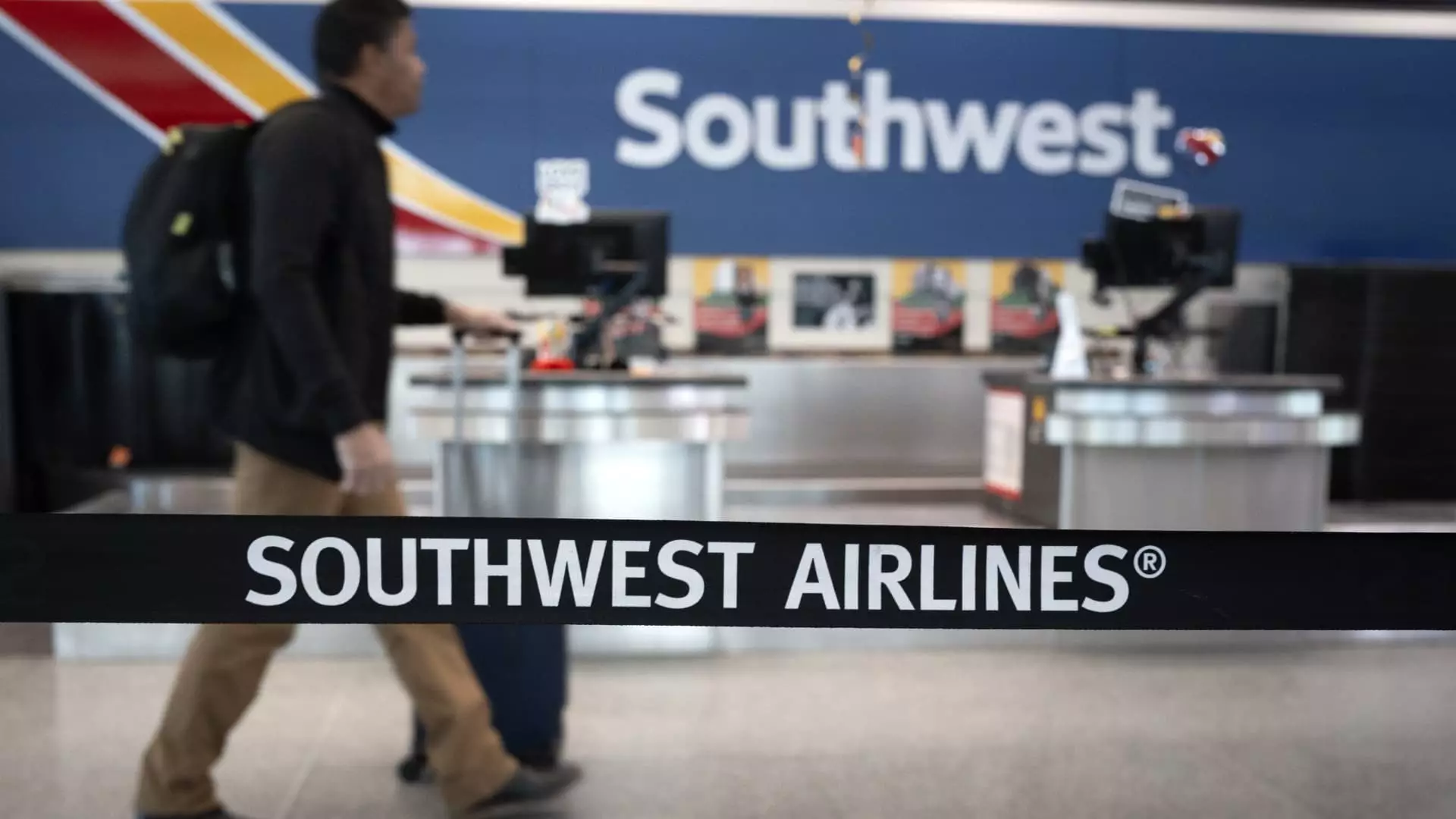In a shocking departure from decades of tradition, Southwest Airlines has made the monumental decision to charge for checked baggage—a policy that has been a cornerstone of its customer service ethos for over fifty years. This notable shift is particularly jarring for a company that has long prided itself on offering two free checked bags, which set it apart from competitors in a fiercely competitive market. While it’s impossible to ignore the financial implications behind this change, one cannot help but feel that Southwest is trading in its loyalty and customer-friendly reputation for short-term revenue gains.
Currently, baggage fees in the U.S. are a colossal revenue stream, raking in around $7.3 billion last year alone. The question arises: should an airline sacrifice customer experience for profit margins, especially when it has built its brand around value and convenience? The announcement of this new fee was driven not just by financial necessity but rather an intensifying pressure from Elliott Investment Management—an activist investor that secured board seats and demanded changes. It paints a distressing picture of businesses sacrificing core values to appease shareholders rather than nurturing loyalty among customers.
The Cost of Convenience: Basic Economy Tickets Hit the Scene
In conjunction with the push to monetize checked baggage, Southwest is also singularly embracing the surging trend of basic economy tickets—a move that aligns it more with the likes of Delta, American, and United Airlines. Under this model, customers will find themselves increasingly deprived of the perks they once took for granted. No refunds, no changes, the potential last-minute boarding, and the crushing reality that points accrued from flights will now expire six months after the journey, rather than the previous twelve months.
This is disheartening for a brand that once genuinely appealed to family travelers and the occasional leisure flyer. It appears that Southwest is signaling a shift away from its traditional customer-centric approach and into a more transactional model, which tends to make flying more stressful. As competition intensifies, airlines are increasingly looking for ways to optimize profit—yet, it seems Southwest is missing the critical insight that customer loyalty doesn’t come alongside a fee structure riddled with limitations.
The Undeniable Tipping Point: Market Pressures
In the face of this evolving model, it is strikingly clear that the principles guiding Southwest’s previous operational frameworks are being re-evaluated. The announcement of charged baggage and basic economy tickets signals a broader market pressure for all airlines: the need to generate revenue inevitably leads to an erosion of customer-friendly services. But one must ask where the line should be drawn. Airlines thrive on repeat customers drawn by loyalty and value, yet the industry continues to spiral into unnecessary complexities.
The ability to make timely changes, enjoy comfortable seating without exorbitant fees, and feel treated as valued passengers are what initially drew many to Southwest. Now, with reports that even the often-cherished open-seating policy will be replaced with assigned seating for select tickets in 2026, it feels as if the soul of the brand is being shelved in favor of immediate profitability.
Customer Expectations vs. Corporate Decisions
One can’t help but notice the reaction from loyal Southwest travelers as these changes emerge. Customer sentiments are filled with anger and disappointment, as voiced in online forums and social media. Many individuals who once stood by Southwest as a more ethical option are now questioning what this new direction means for their flying experience. It’s disheartening to observe that the leadership seems unfazed by the backlash, claiming there has been no measurable drop in bookings.
This disconnect between executives and customer experiences often signals a failure to grasp the foundational elements of brand loyalty. Feeling valued and appreciated as a customer is not just about price—it’s about the overall experience, and Southwest seemed well-equipped to deliver that. However, the stark reality is that while profit-driven metrics rule corporate boardrooms, customer loyalty is often left behind in the decision-making processes. Any savvy company should recognize that long-term loyalty can produce much greater rewards than short-term profitability.
Looking Ahead: The Potential Fallout
As we step into the future of air travel, the decision by Southwest Airlines marks a pivotal point in its development. While it may seem easy to frame this move as a response to market dynamics, it poses uncomfortable questions about the airline’s ability to remain true to its roots. Charging for previously free services may indeed plump fiscal reports for the short term, but unless accompanied by a palpable improvement in customer experience, it can pave a treacherous path instead.
For now, passengers will have to brace themselves for this looming shift, with concerns that it might set precedents for further fee expansions. If Southwest Airlines continues on this trajectory, it risks completely reshaping its brand from one of affordability and loyalty into one that epitomizes the very transactions it once opposed.

